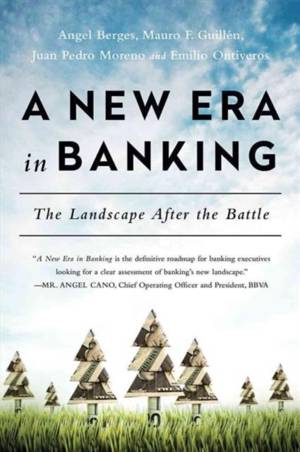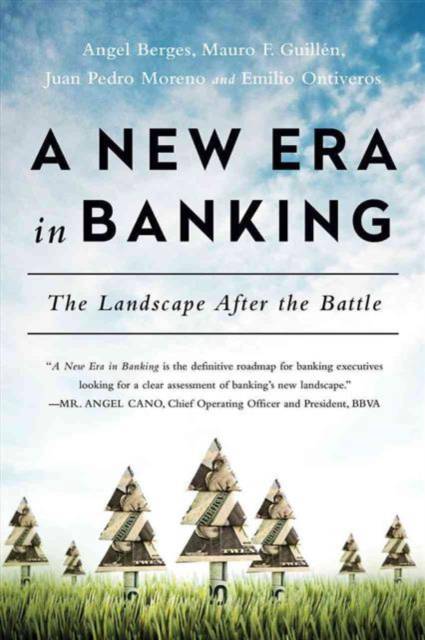
- Afhalen na 1 uur in een winkel met voorraad
- Gratis thuislevering in België vanaf € 30
- Ruim aanbod met 7 miljoen producten
- Afhalen na 1 uur in een winkel met voorraad
- Gratis thuislevering in België vanaf € 30
- Ruim aanbod met 7 miljoen producten
Zoeken
New Era in Banking
The Landscape After the Battle
Angel Berges, Mauro F Guillen, Juan Pedro Moreno, Emilio Ontiveros
Paperback | Engels
€ 36,45
+ 72 punten
Omschrijving
The financial crisis that began in 2007 triggered a break with banking practices of the past. Even as the crisis occurred, a broader set of economic, geopolitical, and technological forces were already reshaping the financial industry's transition from the twentieth to the twenty-first century. While these changes in the financial and global climate have led to a major overhaul of banking regulations and increased scrutiny of banks, they have also revealed opportunities for the development of a banking sector fit for the future. A New Era in Banking: The Landscape After the Battle identifies the main drivers of change at the heart of this wholesale transformation of the financial services industry. It examines the complex challenge for financial institutions to de-risk business models, reconnect with customers, and approach stakeholder value creation. Untangling the severe mutations that have taken place in the banking sector, A New Era in Banking, contextualizes these changes within larger trends that extend beyond the confines of the financial crisis. Banks are more vulnerable than ever to the crosscurrents of economic, demographic, regulatory, and technological change. However, by discussing how banks can operate as flexible, technology-enabled information businesses, A New Era in Banking advocates financial practices based not only on survival, but innovation.
Specificaties
Betrokkenen
- Auteur(s):
- Uitgeverij:
Inhoud
- Aantal bladzijden:
- 256
- Taal:
- Engels
Eigenschappen
- Productcode (EAN):
- 9781629561615
- Verschijningsdatum:
- 25/02/2016
- Uitvoering:
- Paperback
- Formaat:
- Trade paperback (VS)
- Afmetingen:
- 150 mm x 226 mm
- Gewicht:
- 317 g

Alleen bij Standaard Boekhandel
+ 72 punten op je klantenkaart van Standaard Boekhandel
Beoordelingen
We publiceren alleen reviews die voldoen aan de voorwaarden voor reviews. Bekijk onze voorwaarden voor reviews.











